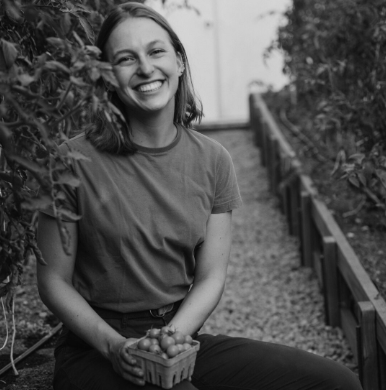Much of my research involves talking to ranchers, who are often older, often male, and often conservative. I receive names and phone numbers through word of mouth, knowing many ranchers may not have cell service at their home, may not text, or may not want to speak with someone pursuing a Master of Environmental Science degree. I explain that I spent several years working on farms and ranches, that I believe grazing can be a force for ecological good, and that I am invested in a future wherein ranching operations in this valley remain viable.
The ranchers I speak with often hold ideals that exactly oppose those of the environmental community I come from. Many are against the Colorado wolf reintroduction, against the Bureau of Land Management’s proposed Public Lands Rule, and against the EPA’s fight for the maintenance of the Clean Water Act. While opposing government regulation, a tool often pursued by the environmental community, ranchers I’ve spoken with operate under a different system of accountability. Rather than to a legal entity, the accountability is to one’s future, to the next grazing season, to the generation that will eventually assume responsibility for the operation. The moral frameworks that sustain an intergenerational commitment to conservation in conservative and agricultural communities differ from those of more liberal environmental groups.
I recently spoke with one rancher, nearly 70 years old, whose son is taking over the ranch as the sixth generation on the property. The older rancher rebuffed the idea of human-caused climate change, and said that there are still just as many good water years as there are bad. Yet, the same rancher spoke extensively about soil health, grass growth points, and carbon sequestration. While avoiding the loaded language of climate change, he put words to his dedication to the future. His life’s work is in turning sunlight into healthy soil, sequestering carbon in the process. Cattle are just the tool for doing so.
Photo by the author.
Single-strand polywire electric fence lines the next paddock cattle will move into.
In my research, I hope that understanding the polarization around livestock production can provide some insight into larger trends of increasing polarization across the country. The distance between producers (farmers and ranchers) and consumers has increased over the same decades wherein political division between the left and right has increased. The distance I’ve witnessed, with one foot in the Colorado Cattlemen’s Association and one foot in the Yale School of the Environment, between ranchers and environmentalists has grossly exaggerated the myths we tell ourselves about the other side. The love of land, open spaces, healthy ecosystems, and natural beauty doesn’t break down along the urban-rural divide, the liberal-conservative divide, or the coastal-middle of the country divide. Often, ranchers describe their frustration with the disconnect between the work they do in caring for land and the public perception of their work. An environmental movement that has disparaged livestock producers erases the profound and admirable commitment of investing one’s life in a piece of land.
STUDENT RESEARCHER

Kathleen Voight, Research Assistant and Western Resource Fellow | Kathleen Voight is a Master of Environmental Science candidate focused on the conservation and management of working lands in the Rocky Mountain West. Her research focuses on agricultural viability, resiliency, and drought adaptation in livestock grazing systems in southern Colorado. Kathleen believes working lands are essential to western landscapes that support rural communities and healthy ecosystems. Prior to matriculating at the Yale School of the Environment, Kathleen worked in agriculture, conservation, and environmental education. Kathleen holds a BA in History of Art from Yale University and she is a former Rocky Mountain Farmers Union Fellow. In her free time, Kathleen likes to bike, hike, and ski as often as possible. See what Kathleen has been up to. | Blog
